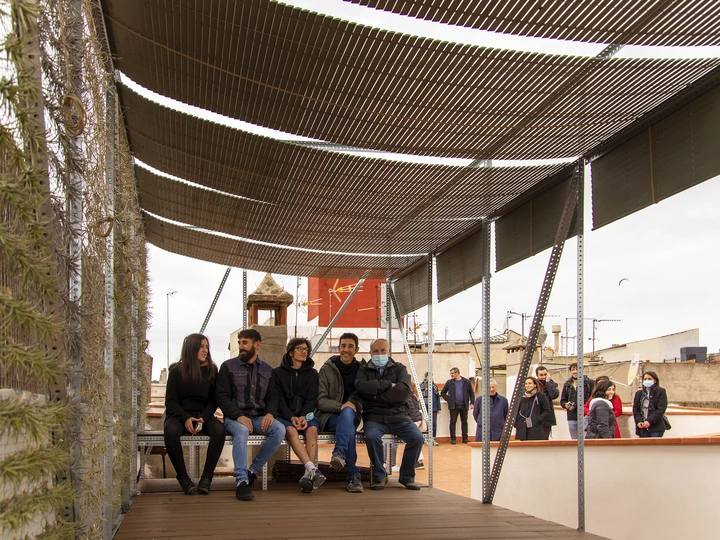CO-HAB Raval

Júlia Brull
Isaac Colin
Albert Comas
Còssima Cornadó
Marta Domènech
Helena López
Almudena Pérez
Gonzalo Piasek
Joan Ramón Rossell
Victoria Tous
Sara Vima
Our team comprises two research groups from the Universitat Politècnica de Catalunya (REARQ-UPC and GICITED-UPC) and the Oasiurbà Association (social transformation from housing in the Raval neighborhood).
We work together to improve the quality of life of the residents in the neighborhood through the co-design and co-fabrication of small renovations in collaboration with entities neighbors and professionals in the area.
This project addresses the urgency of improving living conditions in multi-family housing communities in deprived neighbourhoods through the bottom-up method of guided self-rehabilitation.
Barcelona’s Raval neighbourhood combines a high population density of inhabitants at risk of poverty and residential exclusion with a degraded building stock that fails to fulfil habitability requirements and is in need of expensive rehabilitation and heritage preservation.
This project consisted of the participatory design of a catalogue of small-scale solutions aimed at improving habitability in keeping with six principles: (1) sustainability, (2) interior air quality and sanitation, (3) inclusion, (4) care and health, (5) safety and (6) resilience. Low cost, perfectible, recyclable solutions designed in collaboration with residents meet urgent needs while respecting heritage protection. Several of these solutions were implemented in five multi-family buildings in the Raval. In each, we tested the feasibility of a guided self-rehabilitation process where residents worked on architectural solutions with help from local professionals.
The impact of the project is based on two characteristics: its bottom-up nature and its scalability. First, it relies on the capacity of residents and local entities to reconquer their right to housing and proactively transform their living spaces. Second, it is scalable thanks to the design of ‘plug-in’ solutions that were implemented in pilot cases and can be replicated in the rest of the neighbourhood or in similar contexts. We found that small-scale, participative socio-architectonic transformations can have a big impact by exploring the limits of simple and efficient constructive solutions that are low-cost, permit-free and do not require complex property agreements. Such projects can be easily managed and built by the residents themselves with help from local professionals.